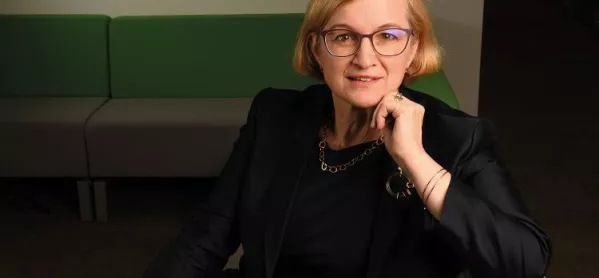- Home
- ‘Nine changes that would prove Ofsted is REALLY listening’
‘Nine changes that would prove Ofsted is REALLY listening’

So Amanda Spielman, Her Majesty’s chief inspector, is "listening to teachers". The headline could be seen as extraordinary. Is this really a first acknowledgment of decades of disregard, even disdain, shown by the inspection service towards those who competently and expertly lead and represent the profession?
There are more than half a million expert educators working in England's schools and colleges, across every possible phase and setting. And, at long last, it is just possible that our informed professional voice will be heard. The fear is that the listener has already decided what she wants to hear.
Let’s put it to the test. School and college leaders, teachers and support staff, their associations and professional bodies, have spoken. The public messages have been consistent, intelligent and helpful. Unfortunately, the consultation didn’t pose all the necessary questions, so the best answers may not all be in the pile of responses. If Ofsted is listening, then what should we reasonably expect?
It is time, indeed well beyond time, to bring an end to the unreliable and indefensible practice of reducing inspection findings to a single numerical point on a four-point scale. The case to stop this damaging approach is reasoned and compelling. Ofsted has not offered any internal, let alone international, evidence to demonstrate that institutional evaluation is best undertaken in this way.
If Ofsted is listening, then inspectors must stop passing the blame for the consequences of their own previous inspection behaviours. It is time to recognise how a pre-occupation with outcome data and headline measures, regardless of context, has been the catalyst for "off-rolling". It is time to roll back from the absurd insistence on the EBacc as an appropriate model of provision for the majority of pupils.
Overhauling Ofsted
Ofsted needs to stop implicitly criticising schools for narrowing the secondary curriculum, when this is principally a consequence of inflated knowledge-filled GCSEs. The new inspection emphasis on curriculum is welcome, but the profession has seen through the emperor’s new clothes of an evidence base conveniently selected to confirm a bias for “knowledge-rich” approaches.
If Ofsted is listening, then we can look forward to the inspectorate exercising its independent voice to castigate a government that has overseen the fiscal mutilation of provision – for the most vulnerable, including SEND learners, especially, but also across the shire counties, where minimal funding levels have fallen below anything that might be deemed sustainable.
The proposed new framework made no reference to funding or resources, despite the fact that leadership capacity, curriculum breadth, provision of CPD, sustained subject leadership, the learning environment, teacher workload and pupil/staff wellbeing are all detrimentally impacted by insufficient per-pupil income.
There are nine expert tests that can be used rationally to assess any school evaluation process. If Ofsted were really listening then we could look forward to inspection that:
- is developed with principles, values and evidence that have extensive professional consensus;
- recognises, affirms and promotes progressive school improvement;
- is conducted in a manner that enhances the recruitment and retention of school teachers and leaders;
- develops from, and respects, school self-evaluation and peer review;
- recognises and is sensitive to school contexts and learners' varying needs;
- deploys robust statistical measures that exhibit validity, reliability and authenticity;
- makes sensitive and nuanced judgements about school provision publicly, or privately, only as appropriate;
- recognises that education quality requires adequate financial resources;
- is properly piloted and reviewed, when changes are made.
Which of those nine tests will the new framework meet?
It’s time to offer our pupils a sense of value and purpose in their education that goes far beyond educating for "life in modern Britain" or reasserting those ill-conceived and artificial "fundamental British values" that still feature in Ofsted’s expectations.
As an educator, campaigner and school leader, my unconstrained vision is for schools that equip the next generation to actively and critically engage in a global community, with international values, empathetic immersion in cultural perspectives from across the globe, and a compassionate bias to the underprivileged and oppressed.
Now that’s a worthwhile mission with a higher calling than any framework we’ve seen so far.
Robin Bevan is the headteacher at Southend High School for Boys
Keep reading for just £1 per month
You've reached your limit of free articles this month. Subscribe for £1 per month for three months and get:
- Unlimited access to all Tes magazine content
- Exclusive subscriber-only stories
- Award-winning email newsletters



